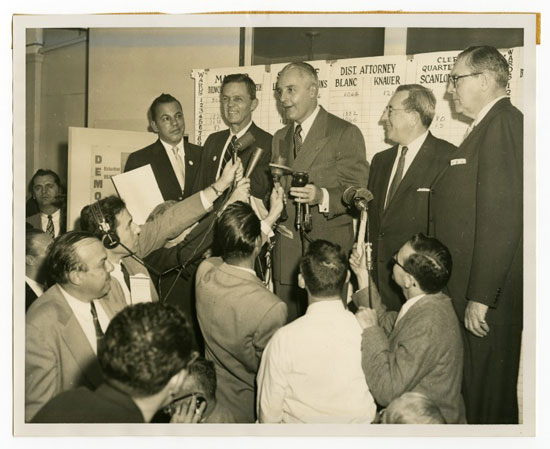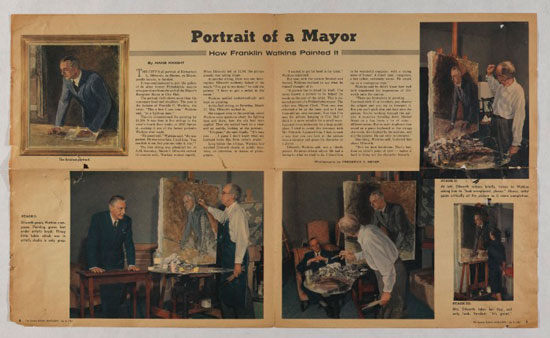 During the 1950s, Dilworth and Clark worked together to reorganize and rejuvenate the city in what was tagged “Philadelphia’s Modern Golden Age.” Under their administrations, the city’s parks and historic sites were restored, the public transit system was reformed, a public housing system was established, and economic development was encouraged along the waterfront. Dilworth outlined the Philadelphia of today: Independence Mall, SEPTA, Society Hill, community centers, and public parks. The city also became the first in the nation to fluoridate its water, which at the time was thought to be a Communist plot. As mayor, he served as president of the American Municipal Association and of the U.S. Conference of Mayors as well as a member of the Governor’s Commission on Constitutional Revision. Throughout his career, Dilworth fought against segregation in private schools and supported organized labor unions as well as civil rights. As district attorney, he hired African American lawyers and his private law firm was the first major firm in the city to hire a Jewish partner.
During the 1950s, Dilworth and Clark worked together to reorganize and rejuvenate the city in what was tagged “Philadelphia’s Modern Golden Age.” Under their administrations, the city’s parks and historic sites were restored, the public transit system was reformed, a public housing system was established, and economic development was encouraged along the waterfront. Dilworth outlined the Philadelphia of today: Independence Mall, SEPTA, Society Hill, community centers, and public parks. The city also became the first in the nation to fluoridate its water, which at the time was thought to be a Communist plot. As mayor, he served as president of the American Municipal Association and of the U.S. Conference of Mayors as well as a member of the Governor’s Commission on Constitutional Revision. Throughout his career, Dilworth fought against segregation in private schools and supported organized labor unions as well as civil rights. As district attorney, he hired African American lawyers and his private law firm was the first major firm in the city to hire a Jewish partner.
 Dilworth answered as many letters from Philadelphians as possible. He answered questions that ranged from the rising crime rate and urban violence to noise complaints on Walnut Street to his frequent and leisurely winter vacations in Florida. His responses were surprisingly honest; he used his political logic to try to reason with people. Dilworth’s efforts as mayor changed the attitude of Philadelphians. Journalist Peter Binzen noted that when Dilworth was mayor, “People began to believe in the city.”
Dilworth answered as many letters from Philadelphians as possible. He answered questions that ranged from the rising crime rate and urban violence to noise complaints on Walnut Street to his frequent and leisurely winter vacations in Florida. His responses were surprisingly honest; he used his political logic to try to reason with people. Dilworth’s efforts as mayor changed the attitude of Philadelphians. Journalist Peter Binzen noted that when Dilworth was mayor, “People began to believe in the city.”
